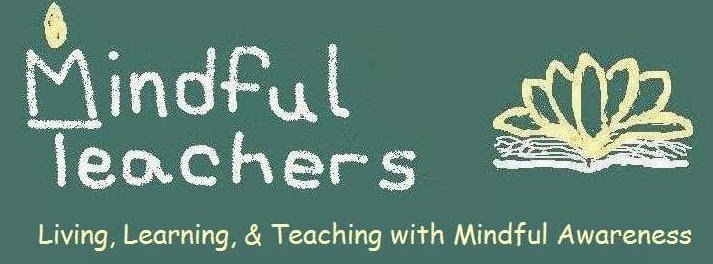An Interfaith Perspective on Compassion and Service
published September 2, 2018
photo by Tim Savage from Pexels
by Catharine Hannay, founder of MindfulTeachers.org
“What is Zen?
Simple, simple, so simple.
Infinite gratitude toward all things past;
Infinite service to all things present;
Infinite responsibility to all things future.”
This is what Huston Smith's roshi told him at the end of an intensive retreat, as recounted in Tales of Wonder: Adventures Chasing the Divine.
If you're not familiar with his work, I encourage you to read Mr. Smith's classic textbook The World's Religions or to watch his series of interviews with acclaimed journalist (and former pastor) Bill Moyers. Huston Smith had an incredibly gentle and thoughtful presence, and was able to listen to and learn from other traditions while keeping his own faith. A Methodist Christian, he also did yoga every morning, prayed five times a day in the Muslim tradition, and participated with his daughter's Jewish in-laws in sitting shiva as a way of comforting each other when she died.
As he explains in Tales of Wonder,
"The major religious traditions address the mysteries, but they have other business to do: widen understanding, give meaning, provide solace, promote loving-kindness, and connect human being to human being."
Listening to and learning from other traditions doesn't mean we have to adopt their beliefs. In Mindful Compassion, Buddhist teachers Paul Gilbert and Chodon explain that even for nonChristians,
“The Christian story is ultimately one of courage[...] the idea of dying in that way to save humanity can only be seen as extraordinary courage—and indeed it is the call to courage, to stand up for the poor, the sick, and the suffering, which is at the heart of Christian compassionate values[…]
In the Mahayana Buddhist tradition, too, courage, or fierce compassion, is one of the key attributes of the bodhisattva, or spiritual warrior, who embodies the compassionate ideal, able to tolerate his or her own fear in order to face the pain and difficulties of life, and who may put his or her own safety at risk in order to alleviate the suffering of others.”
I've had many conversations with my sister, Pastor Deb Sunoo, about her work in church ministry and the importance of compassion. We wrote a post together on the challenges of self-care in the helping professions, and in a post on 5 Common Misunderstandings About Christians and Mindfulness, I included a moving passage from one of her sermons about using blessings as a form of Christian lovingkindness practice.
Here are some thoughts from another of Rev. Sunoo's sermons, sharing her perspective on how people from different backgrounds can work together to heal the world:
“Hopefully it’s clear enough that I love spending time with Presbyterian Christians – after all, I’ve made this my life’s work – but this also means I have spent the vast percentage of my adult life surrounded by my own kind, if you will. So it was a real gift to be invited to join an interfaith clergywomen’s group that includes Jewish rabbis, and Catholic women and Muslim women who are leaders in their faith communities, as well as pastors from different racial and ethnic groups who represent a variety of other Christian traditions.
Something that’s been coming up in conversation with my rabbi friends recently is the Jewish concept of tikkun olam, which in English simply means repairing (or mending) the world. The verb for “repair” there is the same verb used in modern Hebrew for fixing a broken bicycle or a broken table, repairing a computer that’s stopped functioning, or mending a torn shirt. So while the concept of a whole world in need of repair is a broad one, with far-reaching implications, it brings with it a verb we often use to talk about fixable problems. What might it mean to understand repairing the world in that sense?
“If you offer your food to the hungry and satisfy the needs of the afflicted… the Lord will guide you continually … you shall be called the repairer of the breach, the restorer of the streets to live in.” (Isaiah 58:6-12)
At my interfaith clergy group last weekend we puzzled together over what to do when we want to support an incredible range of worthy causes all at once. Presumably it comes down to listening in whatever ways we can for God’s invitation to take up our own particular set of tools. And trusting that God’s got lots of other good folks on the job too, playing their respective parts.
We may very well need to express our lament, to cry out, brokenhearted, that our world is in the shape it’s in. But we can’t stop with lament. Not when we could pick up a hammer, or a needle and thread, and find a piece of the repair work that can be our piece. Even if all we can do is pound a few nails back into place or stitch a handful of stitches.
For surely there are as many ways to repair the world, with God’s help, as there are people in it.
Agonizing health problems are tackled every day not only by doctors and nurses but by researchers and pharmacists making great strides against cancer and AIDS and malaria.
Others are doing their piece to repair the world through political activism, and through development work for nonprofit organizations, and through engineering solutions to the lack of adequate sanitation around the world.
Others welcome refugees, and provide meals to those who are hungry, and teach kids from impoverished neighborhoods how to read.
Tikkun olam - repairing the world – this isn’t the kind of project we can check off our to do list, as if it could ever be done to our satisfaction. We have a lifetime of meaningful work to do.
I wonder how many situations in which we currently feel overwhelmed could actually be reconsidered from the perspective of:
“OK, but where is my part? What could I fix here? What’s mine to repair?”
Let’s find ways to pick up our respective tool kits and get to work, repairing the world one small break, tear, knot, or scrape at a time."
Regardless of the differences many of us may have with each other in our traditions and beliefs, surely this is what it means to practice tikkun olam, to do our best to emulate the saints and boddhisattvas, to try to exemplify the ideals of our communities.
In the words of the poet Mary Oliver: “May I be the tiniest nail in the house of the universe, tiny but useful.”
About the Author
Catharine Hannay, M.A., is the founder of MindfulTeachers.org and the author of Being You: A Girl’s Guide to Mindfulness, a workbook for teen girls on mindfulness, compassion, and self-acceptance. She was a teacher for twenty years, including a dozen years in the Intensive English Program at Georgetown University, and now works as a writer and editor specializing in mindfulness, effective communication, and mental health. CatharineHannay.com
Related Posts
There are many more resources on compassion and serving our communities here at MindfulTeachers.org, including the following posts:



